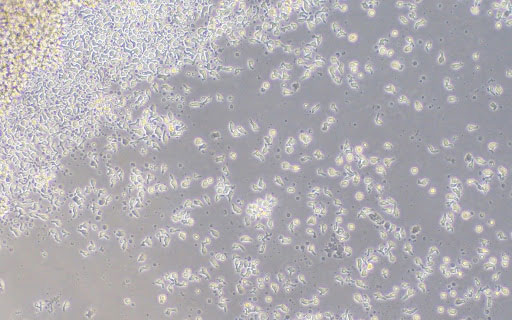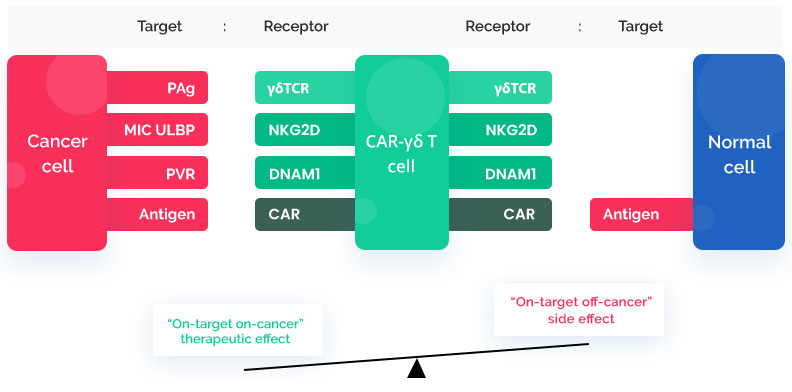



Unlike the conventional CAR-T cell technology that relies on the use of patient blood cells to generate highly personalized αβ T cell-based therapy for certain cancer, our CAR-γδ T cell technology enable the use of donor blood cells as starting materials to manufacture “off-the-shelf” therapy (CTM-N2D therapy) to target stress-induced cancer antigens for a wide spectrum of cancers for many patients.


| TECHNOLOGY | CONVENTIONAL CAR-T CELLS | CYTOMED’S CAR-γδ T CELLS |
|---|---|---|
| Source of starting material | Patient blood cells,
potential issues include:
|
Healthy donor
blood
cells, advantages include:
|
| Collection of starting material | Invasive leukapheresis to collect immune cells | Simple blood draw to collect blood sample |
| Manufacturing process | A
complicated
manufacturing process includes:
|
A
simple manufacturing
process includes:
|
| Method to install CAR | Lentivirus, potential
issues include:
|
mRNA electroporation,
advantages include:
|
| Target antigen | Lineage-specific antigen(e.g. CD19), which expresses in both malignant cells and normal cells and cause “on-target off-cancer” side effect. | Stress-induced antigens (e.g. NKG2DLs and phosphoantigen), which mainly express on cancer cells and reduce the risk of “on-target off-cancer” side effect. |
| Finished product | CAR-grafted αβ T cells | CAR-grafted γδ T cells |
| Application setting | Autologous use, applicable to a single patient only | Allogeneic use, applicable to many patients |
| Indication | For haematological malignancies so far | For solid tumors and haematological malignancies |
| Industrial implication | Highly personalized “made-to-order” product, expensive | “Off-the-shelf” product, affordable |